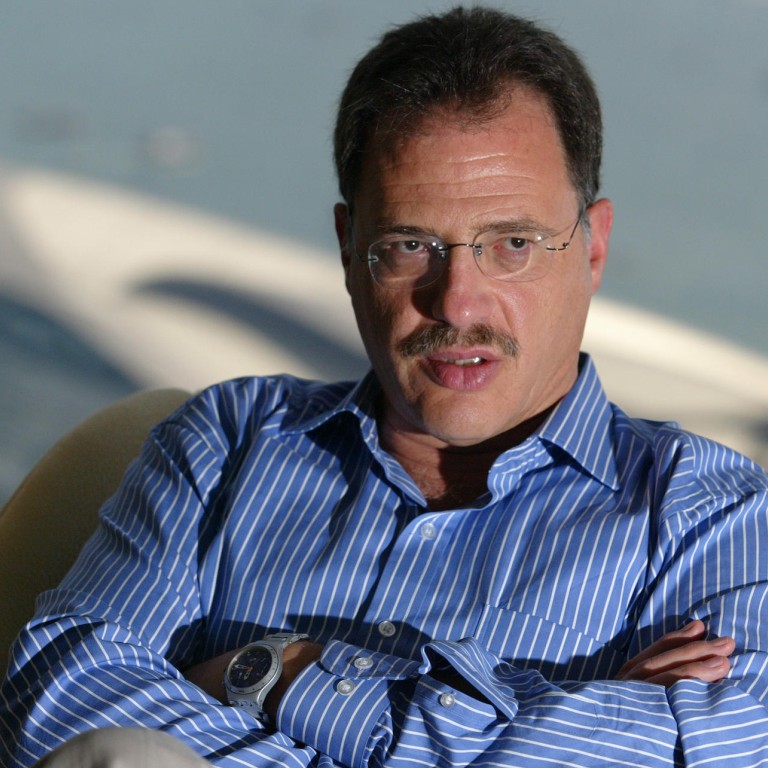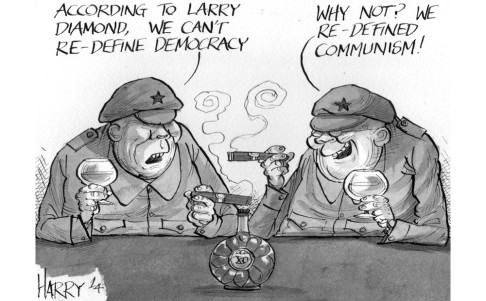
Hong Kong is 'ready for democracy', says top US scholar
Top scholar says universal suffrage is a generic model that Hong Kong is ready to adopt due to rule of law, civil society and election experience
One of the world's leading academics on democracy has poured scorn on a top mainland official's warning that Hong Kong should not copy Western models of universal suffrage.
Professor Larry Diamond, senior fellow at the Hoover Institution of Stanford University in the US, said: "It is ridiculous to argue that the generic system of democracy - in which the people can choose their leaders and replace their leaders in free and fair elections - is a Western model.
"Every country that adopted democracy for the first time was adopting a 'foreign' model."
Diamond was mentor to Regina Ip Lau Suk-yee when the lawmaker and executive councillor did her master's degree thesis at Stanford several years ago.
He was responding to remarks last week by Zhang Dejiang , head of the National People's Congress and the top official in charge of Hong Kong affairs, amid the city's consultation on the election method for choosing the chief executive in 2017.
The No 3 on the Politburo was quoted by a local NPC deputy as saying Hong Kong should not import an electoral system from abroad because the city would not "adapt" to it and it might become a "democracy trap" that causes a "disastrous result".
Diamond said: "Beijing has the power to impose constraints on the election process in Hong Kong. But it does not have the right to redefine what democracy is and is not."
Hong Kong was more "ready for democracy" than most of the some 60 countries that had installed democracy in the past few decades, he said, as the city already had the important elements intact: a mature economy, rule of law, civil society and experience with elections.
"No democracy has ever broken down in a society as rich as Hong Kong is today," he said, adding that other Confucian societies like South Korea and Taiwan had successfully implemented democratic systems, and democracy was even taking root in Mongolia.
"Honestly, if Mongolia, with much lower economic development and much less democratic experience, can institutionalise and sustain democracy, it is pretty ludicrous to argue that Hong Kong cannot," he said.
"It was predictable that Beijing would fear 'losing control' of Hong Kong … It would be refreshing if Beijing authorities would simply state these anxieties, rather than resorting to specious and patently false arguments that Hong Kong is 'not ready for democracy' or 'not suited for democracy'."
While pan-democrats regarded the ongoing political reform as the "final battle", Diamond argued otherwise as he believed the mainland itself was modernising.
"Eventually China will become a democracy … but the real issue is this: Hong Kong is ready for democracy now, and it has been for a long time," the founding co-editor of the said.
When asked if he supported Occupy Central - a civil disobedience movement which plans to mobilise over 10,000 people to block Central if the government fails to come up with a truly democratic proposal - Diamond did not comment directly but gave democrats his backing.
"I can only say … the rules as now conceived are not democratic rules. And it is entirely reasonable that democrats should protest the continued deferral of the promise of democracy."


